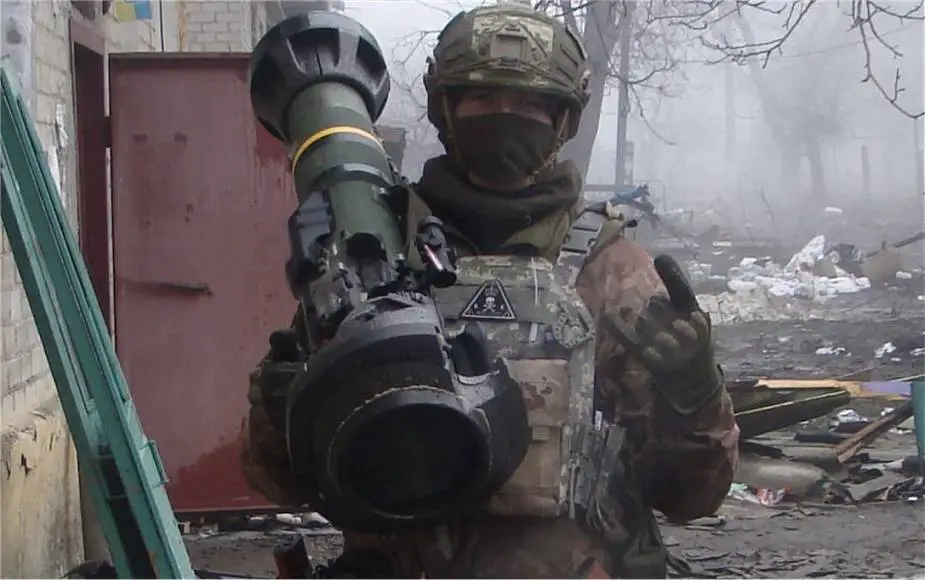Breaking news
British SAS special forces training Ukrainians to use Saab NLAW anti-tank missiles.
According to Catherine Philp in The Times, and Natasha Kumar in TheTimesHub.in, for the first time since the outbreak of a full-scale war with Russia on February 24, British SAS are training Ukrainian soldiers in Kyiv on how to use the British-supplied NLAW anti-tank missile launchers. Officers from two battalions stationed in and around Kyiv said they had received military training by British Special Forces, one last week and the other the week before.
Follow Army Recognition on Google News at this link

Ukrainian soldier with an NLAW man-portable anti-tank guided missile launcher. (Picture source: Twitter account of Calibre Obscura)
As reported by Catherine Philp, Captain Yuriy Mironenko, whose battalion is stationed in Obolon, said military instructors had arrived to instruct new and returning recruits to use NLAW anti-tank missiles. One Ukrainian special forces commander, and known by the military nickname “Scythian,” said the 112th Battalion also received training. This information was confirmed by his senior commander. The British SAS left Ukraine in February 2022 to avoid direct conflict with Russian troops and the possibility of NATO being drawn into the war.
The NLAW (Next generation Light Anti-tank Weapon) also called MBT LAW or RB-57, is a man-portable anti-tank missile weapon system developed and manufactured by the Swedish company Saab. The effective range of the NLAW missile is from 20 to 600 meters or up to 400 meters for moving targets. It has a flight time of fewer than two seconds out of 400 meters and can be launched at 45°, up or down. It allows the gunner to fire from almost any position – from high up in a building, from behind a tree, or from within a ditch. It can also be fired safely from within enclosed spaces, such as rooms, even with other soldiers present. The maximum firing range is 1,000 meters beyond which the missile is designed to auto-destruct.





























